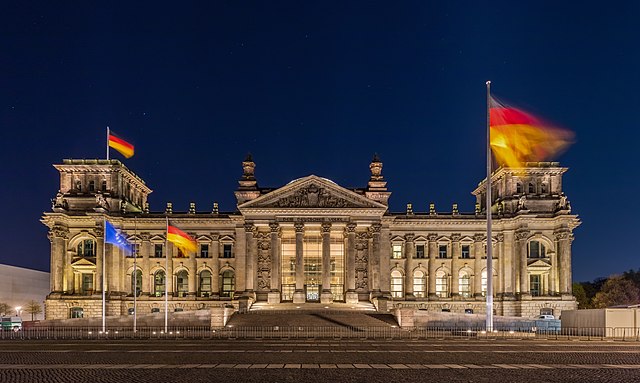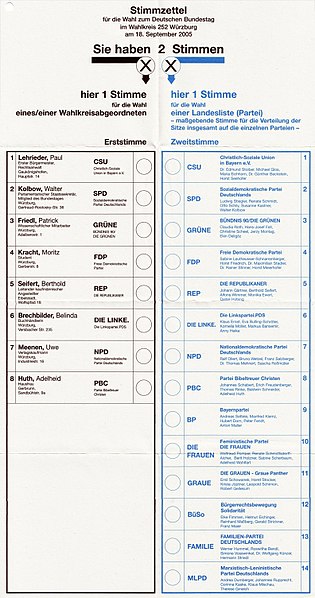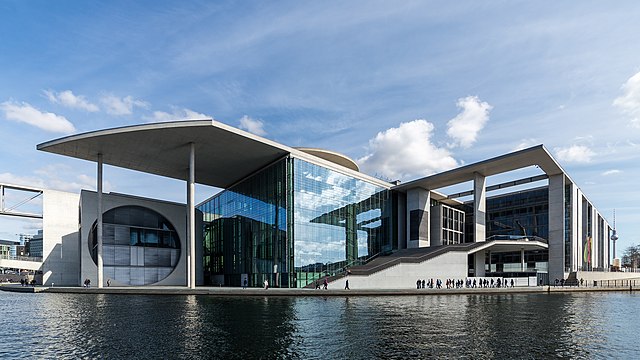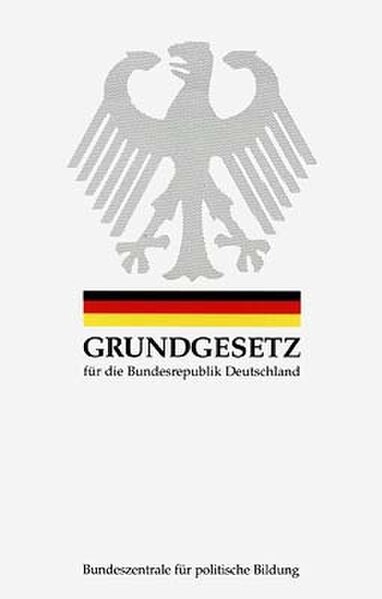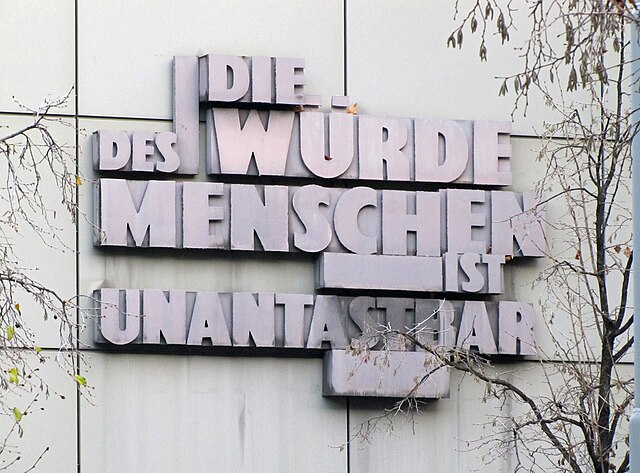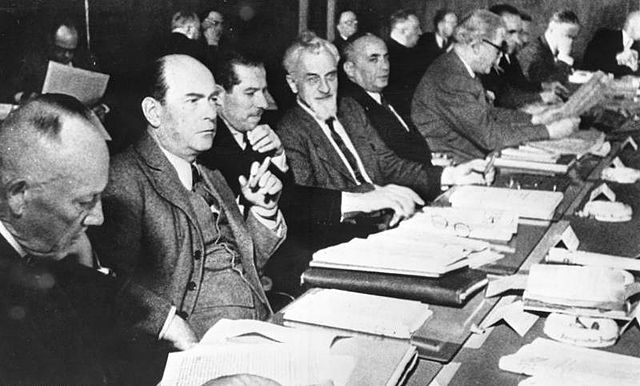The Bundestag is the German federal parliament. It is the only federal representative body that is directly elected by the German people, comparable to the House of Commons of the United Kingdom. The Bundestag was established by Title III of the Basic Law for the Federal Republic of Germany in 1949 as one of the legislative bodies of Germany and thus it is the historical successor to the earlier Reichstag.
Bundestag
The German Unity Flag is a national memorial to German reunification that was raised on 3 October 1990; it waves in front of the Reichstag building in Berlin, seat of the Bundestag.
Bundestag ballot from the 2005 election in the Würzburg district. The column for the constituency vote (with the name, occupation, and address of each candidate) is on the left in black print; the column for the party list vote (showing top five list candidates in the state) is on the right in blue print.
The Marie-Elisabeth-Lüders-Haus, one of the official buildings of the complex, housing the parliamentary library
Basic Law for the Federal Republic of Germany
The Basic Law for the Federal Republic of Germany is the constitution of the Federal Republic of Germany.
Basic Law. Published by the Federal Agency for Civic Education
The Grundrechte at Jakob Kaiser House, Berlin
Article 1, sentence 1: "Human dignity shall be inviolable"
The West German ministers-president debating the Frankfurt Documents in Koblenz


